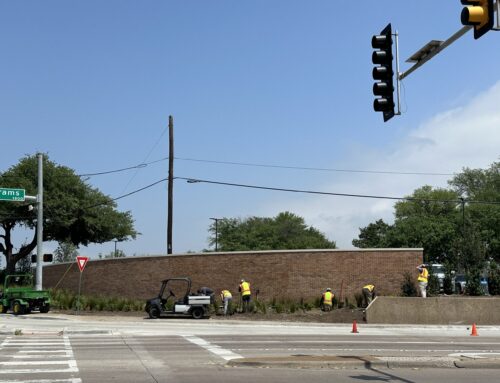Months of work by community members and City staff has resulted in a detailed, conceptual draft for a Gaston Avenue Planned Development District, approved by the City Plan Commission August 15.
The Planned Development District, or “PD,” includes both sides of Gaston from Fitzhugh to Carroll, and is divided into three sub-areas. Present zoning is a mixture of community retail and multifamily.
The PD is designed to provide “customized” zoning to conserve the existing prairie, craftsman and other architectural styles, conserve housing stock, and maintain existing multifamily and retail uses.
The proposed PD is expected to reach the City Council in several months, although budget deliberations and the upcoming elections could create delays.
Contact Jim Prince of the Planning Department at 670-3406 for more information.
FINALLY, A CHANCE TO VOTE: City elections under the new “14-1” system are scheduled November 5. Filing for offices closes September 23. Also on the ballot will be a Dallas County bond issue and several state constitutional amendments, probably including a sure-to-be-controversial state lottery proposal, which will likely increase voter turnout.
Seventy-three Dallas voting precincts are split between two or more Council districts (including some in East Dallas).
Call the City’s redistricting hotline, 670-4528, for help in identifying your new district.
WHY ASK WHY? Remember the discussion in a previous column about the legal uncertainty surrounding “dry overlay” districts?
At least two such proposals remain on hold, but help may be on the way. State Sen. Bob Glasgow of Stephenville has introduced a bill that would, in part, validate zoning ordinances enacted by cities to restrict the sale of alcoholic beverages within city limits.
We should know by next month whether the bill will win passage during the special legislative session and how its provisions will affect Dallas.
PUBLIC HEARING PLANNED: The City Council will hold a public hearing September 11 to discuss amendments to Development Code provisions concerning “institutional and community services uses” (shelters, group homes and other similar uses).
The amendments are designed to bring City requirements into compliance with the new federal Americans With Disabilities Act and will affect, for example, the number of people permitted in a group home.
Call city official James Kincaide, 670-4186, if you have questions concerning this subject.
BRYAN AREA PD HEARING: The City Plan Commission hearing on the Bryan Area PD amendments is scheduled October 17. Call city official Karl Crawley, 670-4209, for an update.
FARMERS MARKET PLANS: Interesting conceptual plans are being reviewed at City Hall for the Farmers Market and Main Street areas Downtown. Even though the area isn’t technically part of East Dallas, neighborhood activists believe a healthy Downtown is critical to revitalization efforts for the entire City.
On the drawing board for Farmers Market is expansion and renovation, with added retail, residential and office uses, and a “water feature” akin to San Antonio’s Riverwalk on a smaller scale.
The proposed “Main District” would eventually include more and different retail businesses, high-rise apartments in what are now under-utilized “Class B” office buildings, infrastructure improvements, cleanup and anti-crime efforts, and eventually even public plazas and green space.
We should be hearing more about these plans in coming months.
DEMOLITION DRAMA: A recently filed lawsuit, if successful, could throw City efforts to demolish “urban nuisance” structures into legal limbo.
Attorneys for Legal Services of North Texas filed suit recently on behalf of the owner of a severely burned duplex on Hudson Street in East Dallas, challenging the City Urban Rehabilitation Standards Board’s authority to use its “police power” to order building demolition.
City attorneys believe the authority is granted through state statute and have had the case removed to federal court.
Invalidation of the demolition ordinance could have serious ramifications for code enforcement and neighborhood cleanup efforts.





